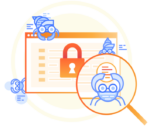Google offers temporary workaround for Android Wear bug
Google’s wearable platform, Android Wear, is missing a way for users to install paid apps on their devices. Users can see the apps in the store but can’t install them. To rectify this problem, Google has issued a temporary workaround to enable paid apps on Android Wear. Until Google comes up with a more permanent solution, developers will have to manually package files differently for their paid apps.
“We’re working to make this easier for you in the future, and we apologize for the inconvenience,” the company wrote on its Android Developers Google+ page.
Steps to manually package files are available here. –Christina Mulligan
Browser-based IDE out of beta
Codio is a browser-based IDE for HTML5, CSS and JavaScript development that just recently came out of beta. It is designed for professional developers, covering the entire software life-cycle from prototype to deployment, but also provides beginning developers a way to learn how to develop Web apps. It supports almost all programming languages and each project comes with its own Ubuntu instance Box server preinstalled with Ruby, Python, Git Mercurial, SVN and Node JS.
Codio features include: abbreviations; auto complete; command bar; keyboard shortcuts; real-time code collaboration; project sharing; panels and tabs; quick open; Bower integration; file templates; and annotations. –Christina Mulligan
A number of Microsoft products reaching end of support
Microsoft has put out a list of products that will be losing support in the next six months.
Key products losing support include Windows 7, Windows Phone 7.8, Office 2010 SP1 and Windows Server 2008. The complete list of products is available here.
For service packs retiring, Microsoft says customers should migrate to the next available Service Pack to receive security updates and support options.
Some products such as Windows Phone 7.8 and Windows Server 2008 will be transitioning from mainstream support to extended support. This means that they will get five years of security updates at no cost and paid hotfix support, but requests for design changes or news features will not be accepted. –Christina Mulligan
CSS framework based on Google’s material design
Web developer Kim Korte has taken Google’s new material design specification, announced last month at Google I/O, and created a CSS framework around it. Material design defines a visual language to create software and devices to respond to user actions and motion.
Leaf, which is currently still in its alpha phase, is free to use and Korte hopes that one day it will be seen as the new Twitter bootstrap for mobile devices. It is available on GitHub for feedback and contribution.
“The idea is pretty simple. Just copy everything as good as possible from Google’s material design and make CSS/JS out of it,” Korte wrote on Leaf’s website. –Christina Mulligan





